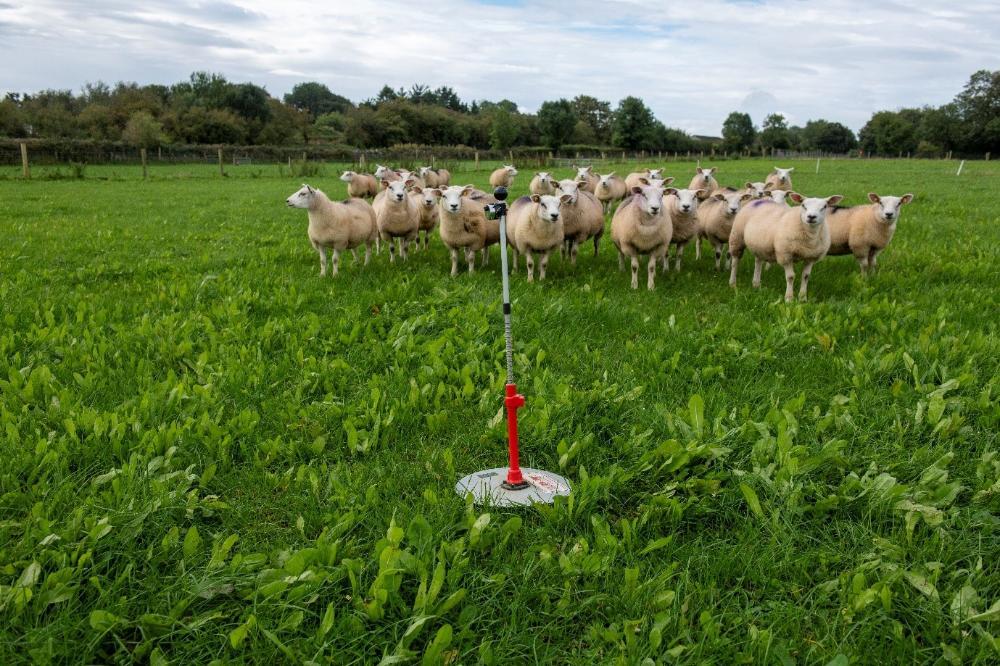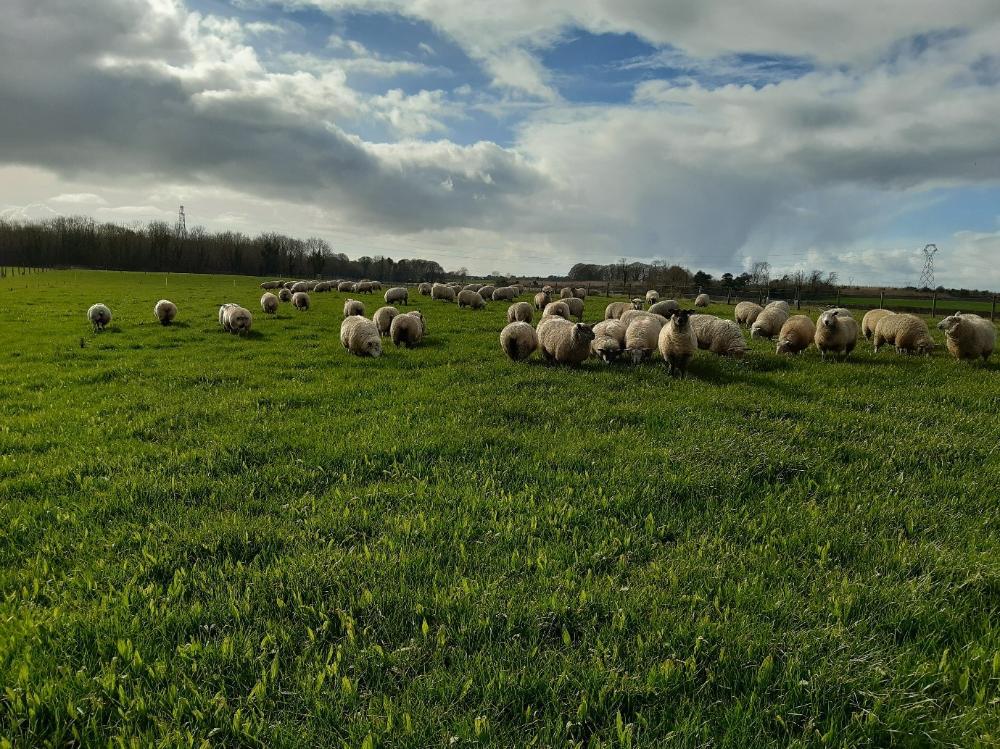Multi-Species-Swards Measure 2023
Multi-Species-Swards Measure 2023 09 May 2023 Type Media Article By Ivan Kelly, B&T Drystock Adviser, Teagasc, Galway/Clare Multispecies swards are swards that have a variety of plants including grasses, clovers, brassicas and herbs. When combined in a sward setting the various species root at varying depths allowing them to access more nutrients and moisture in the […]
By By Ivan Kelly, B&T Drystock Adviser, Teagasc, Galway/Clare
Multi-Species-Swards Measure 2023
Type Media Article
By Ivan Kelly, B&T Drystock Adviser, Teagasc, Galway/Clare
Multispecies swards are swards that have a variety of plants including grasses, clovers, brassicas and herbs. When combined in a sward setting the various species root at varying depths allowing them to access more nutrients and moisture in the soil and promote better soil health. The interaction between the plants in the swards allows them to work off each other with the end result often greater than the sum of the individual parts. Red and white clover are key constituents of these swards by fixing N from the atmosphere and making it available for plant growth, essentially it creates its own fertilizer to produce high quantities of dry matter production.
Historically, swards in Ireland contained a more diverse mix of plants. However, in recent years, due to its ability to produce high yields of top quality forage, perennial ryegrass-dominated swards have being a mainstay of livestock production. Unfortunately, in the absence of fertiliser nitrogen inputs, perennial ryegrass abundance will quickly diminish in swards.
The recent price inflation on chemical nitrogen driven by the war in Ukraine along with the severe challenges posed by climate change highlights significant issues with a reliance on a single species, which requires high levels of fertiliser nitrogen. It is problematic from both economic and environmental perspectives.
MSS Benefits
Research work carried out and ongoing by Teagasc and others on multi-species swards has shown an ability to produce higher dry matter yields from lower nitrogen fertiliser inputs. This provides a more environmentally friendly production system allowing for increased Carbon sequestration while simultaneously reducing emissions of nitrous oxide. Research by Lisa McGrane in Teagasc Athenry showed the addition of a companion forage (Plantain, chicory or clover) to a perennial ryegrass sward significantly improved lamb performance.
Other benefits from MSS include a better tolerance to drought (due to an increased rooting depth), less weeds (after establishment) than grass swards and flowering plants in MSS are excellent for pollinators & biodiversity.
MSS Aftercare
While the plant is being established, it is important to ensure good weed control. Once established, correct management of a MMS sward is needed. Avoid poaching or overgrazing as the growth point of plantain for example, is above ground and damage can severely effect plant performance. Good soil fertility and correct PH is needed and should be addressed prior to sowing. Introduce stock gradually to MSS to avoid digestive upset. By including herbs, you reduce the risk of bloating, but avoid moving animals straight from a grass-only pasture to a mixture with high clover content. There is further information on establishment methods and grazing management advice for Multi Species and Clover Swards under publications on teagasc.ie/signpost.
Multi-Species-Swards Scheme 2023
The Department of Agriculture, Food and the Marine opened Multi Species Sward Measure (MSSM) 2023 on the 12th of April 2023 and will pay farmers up to €300/ha to establish a Multi Species Sward on their farm. Applicants must apply by 29th May 2023, seed can be purchased from date of application and must be sown by the 15th of July 2023. Claims for payment must be lodged by the 31st of August 2023. Payments under this Measure will be limited to a minimum area of 1 hectare and a maximum area of 20 hectares.
In order to receive payment under this measure an applicant must indicate the crop type as Multi Species Swards on their 2023 BISS application. Land parcels that received aid under the 2022 Multi-Species Sward Pilot Measure are not eligible in 2023.
Suitable Site: Choose grazing paddocks over silage fields and choose paddocks with low weed burden. Avoid commonage and land designated as Natura 2000 as they are excluded from the DAFM scheme. Also avoid replacing areas of existing biodiversity (naturally diverse permanent pasture that is not designated) with new multi-species swards. It is important that soil fertility is good i.e. pH 6.2-6.5 and Index 3+ for P & K. The seed mixture required for the DAFM scheme is listed below.
| Plant Species | Weight per pack (kg) |
|---|---|
| Perennial Ryegrass (PRG) | 6.6 |
| Timothy / other non-PRG grass | 0.7 |
| White Clover | 1.5 |
| Red Clover | 1.5 |
| Plantain | 1.0 |
| Chicory | 0.7 |
| Total | 12.0 |
In addition to the requirement to declare the Multi-Species Sward parcels on the 2023 BISS application, supporting documentation in the form of invoices and seed labels are required. At claim stage applicants must indicate the area sown as multi-species and upload their supporting documentation. If a contractor service is used, these receipts should be retained. A seed label must be uploaded for each species mix/batch of seed purchased. Only seed purchased after the application is lodged on Agfood.ie and before the final date for sowing the crop, 15th July 2023 is eligible under this measure. Full details on the scheme are available on https://www.gov.ie/en/service/4ccda-multi-species-sward-measure/


Multi Species Sward on Teagasc Sheep Research Farm, Athenry
